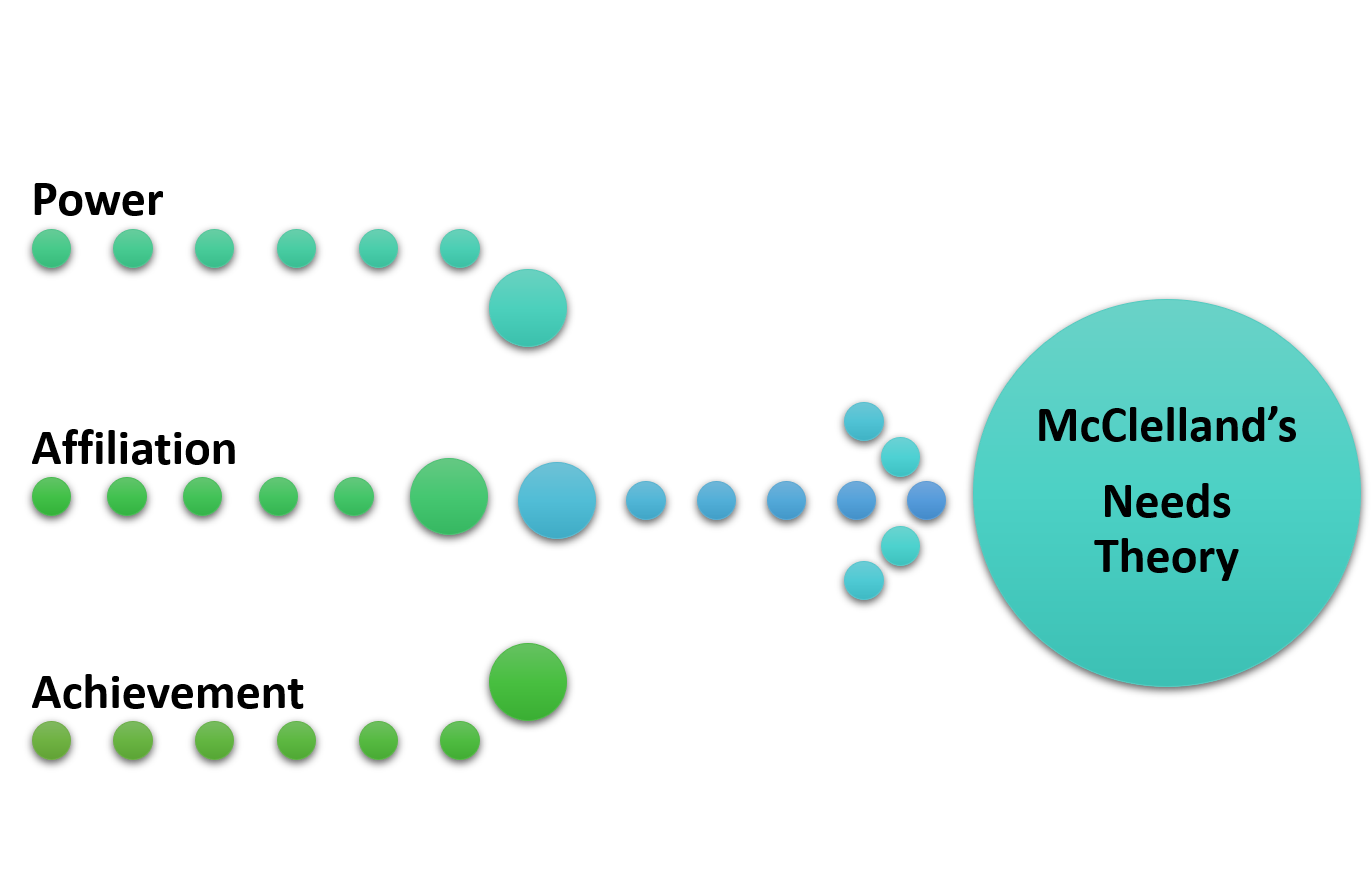McClelland’s Needs Theory was proposed by psychologist David McClelland, who believed that the specific needs of the individual are acquired over a period of time and gets moulded with one’s experience of life. McClelland’s Needs Theory is sometimes referred to as the Three Need Theory or Learned Needs Theory.
McClelland identified three basic motivating needs: Need for Power, Need for Affiliation and Need for Achievement, and, along with his associates, performed considerable research work on these basic needs.

Need for Power (n-pow)
What is Power? Power is the ability to induce or influence the behaviour of others. The people with high power needs seek high-level positions in the to exercise influence and control over others. Generally, they are outspoken, forceful, demanding, practical/realistic-not sentimental, and like to get involved in conversations.
Need for Affiliation (n-affil)
People with high needs for affiliation derive pleasure from being loved by all and tend to avoid the pain of being rejected. Since human beings are social animals, they like to interact and be with others where they feel people accept them. Thus, people with these needs like to maintain pleasant social relationships, enjoy the sense of intimacy, and like to help and console others in times of trouble.
Need for Achievement (n-ach)
McClelland found that some people have an intense desire to achieve. He identified the following characteristics of high achievers:
- High achievers take moderate risks, i.e. a calculated risk while performing the activities in management context. This is opposite to the belief that high achievers take high risks.
- High achievers seek to obtain immediate feedback for the work done by them, to know their progress towards the goal.
- Once the goal is set, the high achiever puts himself completely into the job until it gets completed successfully. He will not be satisfied until he has given his 100% in the task assigned to him.
- A person with a high need for achievement accomplishes the task that is intrinsically satisfying and is not necessarily accompanied by the material rewards. Though he wants to earn money, the satisfaction in the accomplishment of work itself gives him more pleasure than merely the cash reward.